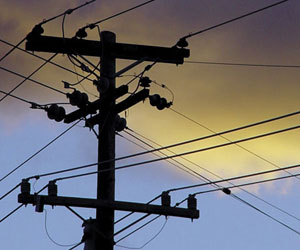NEW DELHI/KOLKATA: The government has laid down stringent norms for telcos sourcing equipment from foreign manufacturers to address security concerns over gear.
Penalties of 100% of the contract value will be imposed on mobile phone operators if any spyware or malware is found in their imported equipment, the Centre announced.
International telecom gear makers keen to do business in India will have to deposit source codes and detailed design of all products and services they sell here into an escrow account in encrypted form. This can be accessed by security agencies and operators in case of an emergency.
The new rules will be incorporated into the licence agreements of all telecom companies with immediate effect. The new norms were issued after security agencies and the home ministry had raised concerns regarding imported telecom gear, especially those sourced from Chinese companies.
 Since February 10, the government has not cleared over 450 equipment orders worth close to $3 billion placed with Chinese vendors citing security concerns, slowing down the expansion plans of all operators. The new norms will also enable telcos to place orders for 3G networks following the recent allocation of 3G bandwidth to successful bidders via an auction process.
Since February 10, the government has not cleared over 450 equipment orders worth close to $3 billion placed with Chinese vendors citing security concerns, slowing down the expansion plans of all operators. The new norms will also enable telcos to place orders for 3G networks following the recent allocation of 3G bandwidth to successful bidders via an auction process.
The new rules further state that global telecom gear makers like Nokia Siemens, Ericsson, Huawei and Alcatel-Lucent and others who maintain and manage mobile networks of cellphone companies here must only employ Indian engineers adding that these gear makers would be given a two-year time frame to comply.
The networks of India’s largest phone firms—Bharti Airtel, Reliance Communications, Vodafone, Tata Tele and Idea, are being managed by either Sweden’s Ericsson, Finland-based Nokia Siemens, China’s Huawei or Paris-headquartered Alcatel-Lucent.
Reliance has outsourced its GSM network management to China’s Huawei while Loop Telecom has tied up with another Chinese firm, ZTE, for its GSM rollout across India. The new amendments to the licence agreement have predictably stirred a hornet’s nest in telecom circles.
While none of the companies or vendors are willing to go on record yet, they felt “such draconian penalty clauses could trigger a serious backlash from affected parties, derail procurement of telecom gear, and, in turn, undermine network expansion plans of the biggest telcos.”


